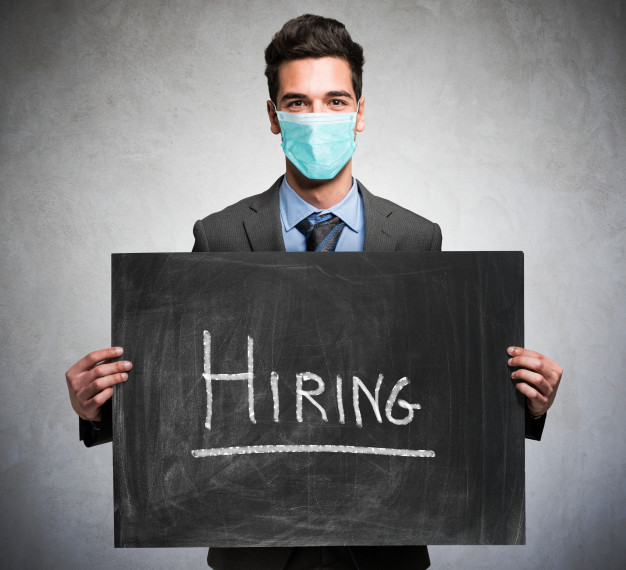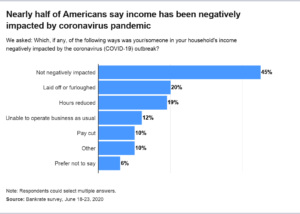
The idea came to Ramona Ferreyra in 2017 while her four-month-old nephew spent five days in the ICU with meningitis. While singing lullabies to him about their shared Hispanic heritage, the Bronx, New York-based resident decided to start a business that put those folklores to life — a journey that would come to fruition nearly a year later as Ojala Threads, a baby and children’s clothing company that features designs inspired by her culture’s histories.
But it would also ultimately put her on the front lines to a devastating recession caused by a novel, contagious disease.
Ferreyra is among 49 percent of U.S. adults who, according to a new Bankrate survey from June, report that their income has been hurt by the coronavirus pandemic and related shelter-in-place orders that have kept millions of consumers at home, eroding the fuel of a consumption-driven economy and inducing one of the worst economic crises in generations. The most common impacts include layoffs, furloughs and a reduction in hours or pay, the poll found.
Of those whose incomes have been negatively impacted by the coronavirus crisis, just 17 percent say it is already back to normal. Meanwhile, 2 in 5 (or 42 percent) expect their income to return to normal within the next six months, while 37 percent say it will take longer. About 4 percent say it will never recover.
“The widespread hit to household income from the pandemic, the length of time for that income to recover, and a pervasive fear of it happening again will all weigh on the economic recovery,” says Greg McBride, CFA, Bankrate chief financial analyst. “Lower income and worries about lower income have a direct effect on consumer spending.”
Bankrate surveyed 3,753 Americans between June 18 and 23 about how their incomes have weathered the coronavirus pandemic. Below are the key findings from the survey.
Key takeaways:
- Just 45 percent of U.S. adults say their household income wasn’t negatively impacted by the pandemic.
- Nearly 6 in 10 U.S. adults suffering income disruption (59 percent) expect recovery will take longer than three months.
- Seventy-six percent of adults are worried about financial harm from another outbreak, while 92 percent of those who’ve already experienced income disruption are worried.
Impact on household income caused by the coronavirus crisis

When it comes to the individual impact, Americans were most likely (at 20 percent) to report being laid off or furloughed. Another 19 percent report that they had their hours reduced, while 1 in 10 report that either they or someone in their household took a pay cut.
The coronavirus pandemic has caused the unemployment rate to skyrocket to its highest since the Great Depression, eclipsing even the 10 percent peak during the Great Recession more than a decade ago.












